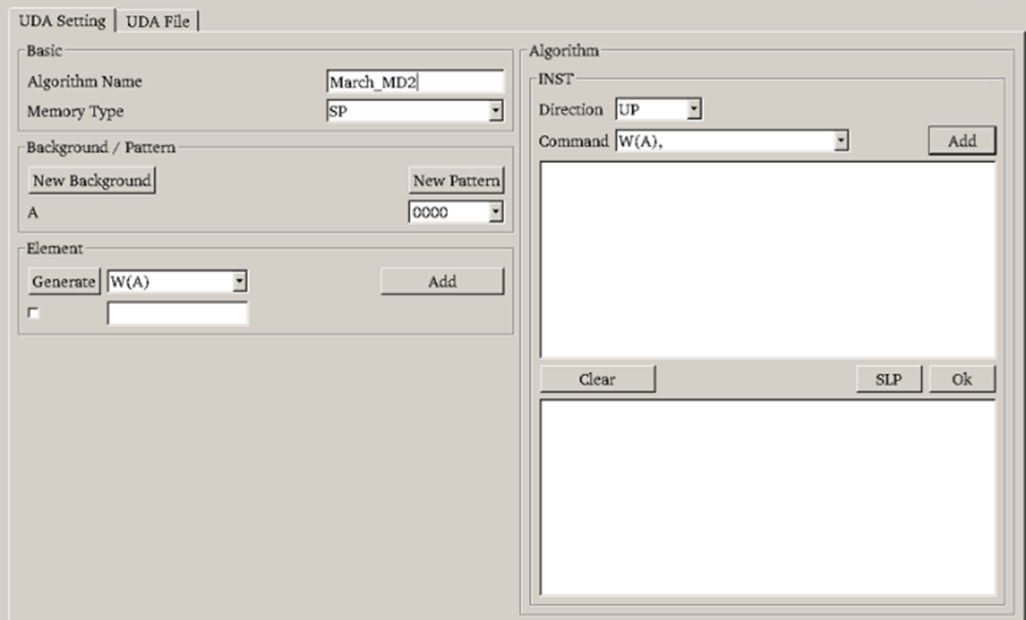Advanced manufacturing processes are widely used in the semiconductor industry to produce high-performance computing chips, artificial intelligence chips, edge computing chips, and image processing chips. iSTART-TEK pointed out that memories produced through advanced processes might have dynamic faults because the CPU (central processing unit) performs continuous reading and writing operations or adds a constant value after continuous reading and writing. Thus, it requires more complex memory test algorithms, such as March MD2, to detect the dynamic faults.
According to iSTART-TEK, in order to detect the dynamic faults of memories produced through advanced manufacturing processes, programmers need to spend more time designing more complex memory test algorithms, such as March MD2. In light of this, iSTART-TEK launched a GUI-based User Defined Algorithm (UDA), as shown in the figure below.

The UDA feature expresses the memory testing algorithm as a component, and create new memory testing algorithms through the component rearranging. Therefore, any memory testing algorithms can be generated through UDA, greatly shortening programmers’ development time of memory testing algorithms. UDA also enables programmers to quickly create dedicated memory testing algorithms according to the defect information of the memories. In addition, due to the component-based architecture, the circuit area of the memory testing algorithm generated by UDA is also quite small.
iSTART-TEK said that its EDA tool START™ v3 with the UDA feature, when used in conjunction with the built-in memory test algorithms of EZ-BIST, offers greater flexibility and diversity in the design of memory test algorithms.
The UDA launched by iSTART-TEK is expected to bring fast, cost-effective and high-efficiency services to chip developers. It will play a key role in both chip applications and manufacturers’ development cycles.
News:https://money.udn.com/money/story/5635/6082635?from=edn_search_result
